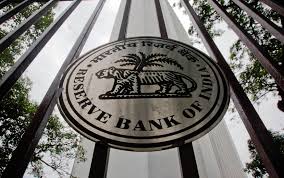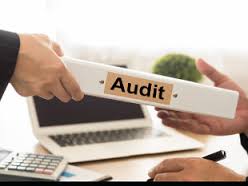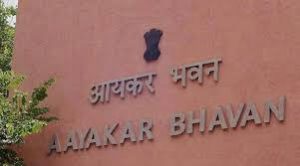 Multipurpose Empanelment Form of ICAI (MEF-ICAI), an online application, is meant for allotment of Bank / Branch Audits to the ICAI Members/ CA Firms, which can be filled and submitted at the MEFICAI website directly.
Multipurpose Empanelment Form of ICAI (MEF-ICAI), an online application, is meant for allotment of Bank / Branch Audits to the ICAI Members/ CA Firms, which can be filled and submitted at the MEFICAI website directly.
Online Multipurpose Empanelment Form (MEF) for the year 2016-17 is live at www.meficai.org. The last date for submission of online MEF Form for the year 2016-17 is 31st August, 2016 and for submission of hard copy of “DECLARATION FOR MEF 2016-17” is 12th September, 2016.
In case, an applicant faces any problem regarding MEF, complaint may be lodged by accessing complaint-box link available on www.meficai.org
In case, the complaint is not resolved or replied within a week, members can call at 011-30110444, 30110411, 30110440, 30110480, 30110438, 30110451 and 30110508 (between 3.00 PM to 5.00 PM on all working days).
With kind regards,
Prafulla Premsukh Chhajed
Chairman, Professional Development Committee
ADVISORY FOR FILLING MULTIPURPOSE EMPANELMENT FORM 2016-17
GENERAL INSTRUCTIONS
| 1 |
Last date for submission of Form on the website www.meficai.org is 31st August, 2016 . Members are advised to fill MEF well in advance to avoid last minute rush. |
| 2 |
Please use Internet Explorer 6.0/ Mozilla Firefox 7.0 or later versions to fill MEF 2016-17. |
| 3 |
The information filled in by the Applicant in MEF can be edited/modified any number of times before online submission. But once it is submitted, it cannot be edited. |
| 4 |
All correspondence, acknowledgement, discrepancy letters, etc. will preferably be through e-mail only . Please fill up email id correctly and ensure that it is active. |
| 5 |
It is must to provide correct contact details i.e. telephone number, email id and also to keep track of these as and when allotment procedure starts. |
| 6 |
MEF 2016-17 has been divided into three parts: |
|
Part A: For Bank Branch Auditor’s panel
Part B: For Additional information for Multipurpose Empanelment
Part C: For panel of Cooperative Societies and Cooperative Banks |
| 7 |
Applicants having minimum continuous standing of 3 years in profession as on 1.1.2016 would be eligible for MEF for the year 2016-17 alongwith other RBI Norms available at http://www.icai.org/new_post.html?post_id=725&c_id=91 |
| 8 |
This year, for the first time, efforts are being made for giving facility of Digital Signatures (Optional) for submission of declaration which will be active from 16thAugust, 2016. In case, you have any technical issues regarding digital signatures, you may send a hard copy of the declaration manually signed by partners/Proprietor/Individual who have not been able to sign digitally. |
| 9 |
Members holding full time Certificate of Practice/firms existing as on 01.01.2016 are advised to fill the MEF Form and submit full details in the MEF as this panel will also be available for the assignments other than the Bank Branch Audit. |
| 10 |
Criteria of Categorization, Rotation and Resting are as per the prevailing norms issued by Reserve Bank of India and are subject to change from time to time. |
|
UNIQUE CODE NUMBER (UCN) |
| 11 |
(a). Unique Code Number (UCN) is very important as it facilitates compiling the applicants’ bank audit experience. Therefore, an applicant must ensure that correct UCN appears in the MEF. |
|
(b). If the applicant has never been allotted UCN at any point of time, UCN will be allotted to all (first time) eligible firms/Members at the time of preparation of the Bank Branch Auditor’s Panel. |
|
(c). If UCN was allotted earlier, please mention the same in Memorandum of Changes (MoCs) and hard copy of declaration, in case it is not appearing in the MEF. The changes will be incorporated in MEF Database after due verification. |
|
(d). UCN will also be allotted to the non-eligible applicants for Bank Branch Auditor’s panel so that their data can be sent to the requisite authorities for other Bank Audits and other assignments. However, the following applicant will not be allotted UCN:
1. Member practicing in his individual name not holding full time CoP and/or associated as Partner/ Proprietor/Chartered Accountant employee in any other firm.
2. In case of firm, if none of Partner/Proprietor is exclusively associated with the firm i.e Partner/Proprietor should not be Partner or Proprietor of any other firm and/or not holding fulltime CoP. |
|
(e). Applicant practicing in individual name should continue to use the same UCN in case he forms a sole proprietary concern. If UCN was allotted earlier in Individual capacity same will be incorporated in MEF Database after due verification . |
|
EXPERIENCE OF BANK AUDIT |
| 12 |
Members may note that experience in capacity, as Articled/Audit Assistant or paid employee/assistant should not be added in experience columns’ to be mentioned in questions of MEF. |
| 13 |
Please do not associate with the same Bank (of which the applicant is appointed as statutory auditor) or any of its subsidiaries/associates, as Concurrent/Internal/Income and Expenditure /Revenue/Stock Auditor or Accountants etc. of the bank/branch of banks & monitoring of borrowing of sick unit. |
| 14 |
Please don’t take a loan (including outstanding on credit card) from or give a guarantee to a loan from the same Bank (of which the applicant is appointed as statutory auditor) or any of its subsidiaries/associates. |
| 15 |
Please don’t accept the position of a Director on the Board of the same Bank (of which the applicant is appointed as Branch Statutory Auditor) or any of its subsidiaries/associates. |
| 16 |
While filling experience in various questions of MEF, if an applicant has done audit of two or more than two entities as Statutory Central Auditor and/or as well as Branch Auditor of a Bank for the same year, the experience should be filled as of one year only. |
|
PROCEDURE FOR LOGGING INTO MEF |
| 17 |
MEF is designed differently in case of Sole Proprietary Concern, Partnership Concern and Members Practicing in Individual Name and therefore, the applicant should select their option carefully while filing up the form at www.meficai.org.Remembering the PASSWORD for future reference is desirable as it will be required for further log in. |
| 18 |
All the information being sourced from Institute database is static (not editable) and the same will be appearing with Green Background . Applicants, who do not agree with the details appearing in these fields, should fill in the Memorandum of Changes (MOCs). |
|
PROCEDURE FOR FINAL PREPARTION OF PANEL |
| 19 |
In case any of the Partners resign during the period of 01.01.2016 till the date of final preparation of the panel for submission to RBI i.e., in October/November, 2016 the same will be given effect to as per the data base of the Institute and provisional category as on 1.1.2016 as mentioned on acknowledgement will stand modified accordingly. This means the credit will be given for only those continuing Partners (from out of the Partners as on 01.01.2016) who have signed the declaration, for categorization of Bank Branch Auditor’s Panel. Further, the credit will not be given to those Partners who have joined subsequent to 01.01.2016, even through merger. |
| 20 |
In case any of the Chartered Accountant Employee as on 01-01-2016 resigns during the period of 01.01.2016 till the date of final preparation of the panel for submission to RBI, i.e. in October/November, 2016 and another Chartered Accountant employee joins during the same period, category as mention on acknowledgement will remain unchanged. |
| 21 |
In case the Firm is closed during the period of 01.01.2016 till the date of final preparation of the panel for submission to RBI i.e., in October/November, 2016 will not be included in the Panel. |
|
COMPLAINT FILING MECHANISM |
| 22 |
In case, an applicant faces any problem in accessing, operating or submission of MEF, complaint may be lodged through complaint mechanism available at www.meficai.org |
| 23 |
Applicants can lodge their complaint by using either MEF No./ MRN / FRN. Complaint number will be displayed on the system after successful lodging of complaint. Please note the complaint number for future reference. Applicant would be able to view the status of their complaints by using MEF No. /Complaint No./MRN/FRN. All the complaints lodged by the applicant would be looked into by PDC Secretariat. |
| 24 |
In case, the complaint is not resolved or replied within a week, members can call at 011-30110444, 30110411, 30110440, 30110480, 30110438, 30110451 and 30110508 (between 3 PM to 5 PM on all working days) |
| 25 |
A hard copy of the Declaration duly signed by all (the continuing) Partners/ Proprietor/ member practicing in individual name (who have not digitally signed) accompanied by a print of acknowledgement of submission of MEF must be sent to ICAI by courier/speed post/hand delivery at the following address in an envelope superscribed with “DECLARATION FOR MEF 2016-17” so as to reach on or before 12th September, 2016. |
|
SUBMISSION OF DOCUMENTS |
|
The Secretary
Professional Development Committee
The Institute of Chartered Accountants of India
“ICAI Bhawan” Plot No- A- 29
Sector- 62, NOIDA
Dist: Gautam Budh Nagar
Uttar Pradesh
PIN- 201309 |
|
|
| 26 |
Receipt of hard copy of the Declaration will not be individually acknowledged. The same will be displayed on the website mentioning MEF number within 15 days of receipt of the Declaration. Declarations will then be verified for completeness and correctness and discrepancy(ies), if any, will be intimated to the applicant by email only |
| 27 |
The Institute reserves right to call for additional information including financial documents, annual financial statements, income tax & service tax returns and such other documents, from the applicant as may be considered appropriate |
| 28 |
While all efforts are being taken in preparing the panel, in the event of any inadvertent mistake or omission, the Institute will not be responsible in any manner. |
| 29 |
The Institute does not undertake any responsibility with regard to the allotment of audit. |
| 30 |
Members are advised not to correspond directly with the authorities concerned on matters related to empanelment. |
|
 The Reserve Bank of India has advised banks and financial institutions to submit data on defaulting borrowers from December 2014 onwards to Credit Information Companies (CICs) and not to the RBI.
The Reserve Bank of India has advised banks and financial institutions to submit data on defaulting borrowers from December 2014 onwards to Credit Information Companies (CICs) and not to the RBI.
Releasing this information, obtained through a portal complaint, Delhi-based Right to Information activist Subhash Chandra Agrawal said on Friday that it is significant to note that the RBI has not so far complied with the Supreme Court order of December 12, 2015, in the RBI vs PP Kapoor (Civil 94 of 2015) case, where it wanted the RBI to make public details of the top 100 loan defaulters among industrialists.
The details required including the names of the businessmen, firm name, principal amount, interest amount, date of default, and date of availing the loan.
In a June 24 letter addressed to Agrawal in response to his PG Portal complaint dated April 24, the RBI said it has submitted to the Supreme Court a list of defaulters above Rs. 500 crore in a sealed cover and claimed that the said information is confidential and requested that it may not be revealed to the public.
The matter is still under consideration of the Supreme Court.
Source: http://www.thehindubusinessline.com/money-and-banking/submit-data-on-loan-defaulters-to-credit-information-firms-rbi-tells-banks/article8797928.ece
The Central Board of Direct Taxes (CBDT) has made it clear that the 1 per cent tax collection at source (TCS) — introduced in this year’s Budget — will apply only to the cash component and not the entire sale consideration. This has been conveyed in a clarificatory circular issued by the CBDT on Friday.
To curb the cash economy, Budget 2016 had introduced a provision in income tax law requiring the seller to collect 1 per cent tax at source from the purchaser on the sale in cash of certain goods or provision of services in excess of ₹2 lakh.
Q&A format
The circular — in the form of question and answer — has been issued to clarify the applicability of the provision where the sale consideration received is partly in cash and partly in cheque
TCS will be applicable only on the cash component of the sales amount, and not on the whole of sales consideration, the CBDT circular said.
For instance, if goods worth ₹5 lakh are purchased for ₹2 lakh in cheque and ₹3 lakh in cash, 1 per cent tax will be levied only on ₹3 lakh.
Also, in cash-and-cheque transactions where the cash component is less than ₹2 lakh, there won’t be any TCS, the CBDT clarified. Further, TCS will not be levied if the cash receipt does not exceed ₹2 lakh, even if the sale consideration exceeds ₹2 lakh, said the circular.
Amit Maheshwari, Partner at CA firm Ashok Maheshwary & Associates, said the CBDT has rightly restricted the 1 per cent TCS to the cash component. This is in line with the Centre’s objective to curb the cash economy and target the expenditure side of black money, he noted.
Rahul Jain, Partner, Nangia & Co, said the Centre’s constant efforts to clarify the law and avoid possible disputes are heartening. In the absence of clarification, various local trade associations, head offices of stores selling high value items, etc had taken a conservative position.
“While it is excellent to see the Centre pulling all stops to nip disputes in the bud, one wishes the law was drafted better to avoid confusion in the first place,” he added.
Source: http://www.thehindubusinessline.com/economy/policy/cbdt-clears-the-air-on-tax-collection-at-source/article8775966.ece
 Foreign law and accountancy firms now have a chance to operate in India on their own. On January 3, the ministry of commerce and industry amended a rule allowing such foreign firms to set up offices and advise clients from SEZs. The move will initially benefit Gujarat International Finance Tec-City (GIFT).
Foreign law and accountancy firms now have a chance to operate in India on their own. On January 3, the ministry of commerce and industry amended a rule allowing such foreign firms to set up offices and advise clients from SEZs. The move will initially benefit Gujarat International Finance Tec-City (GIFT).




